The 4 Best Mothers in the Animal Kingdom
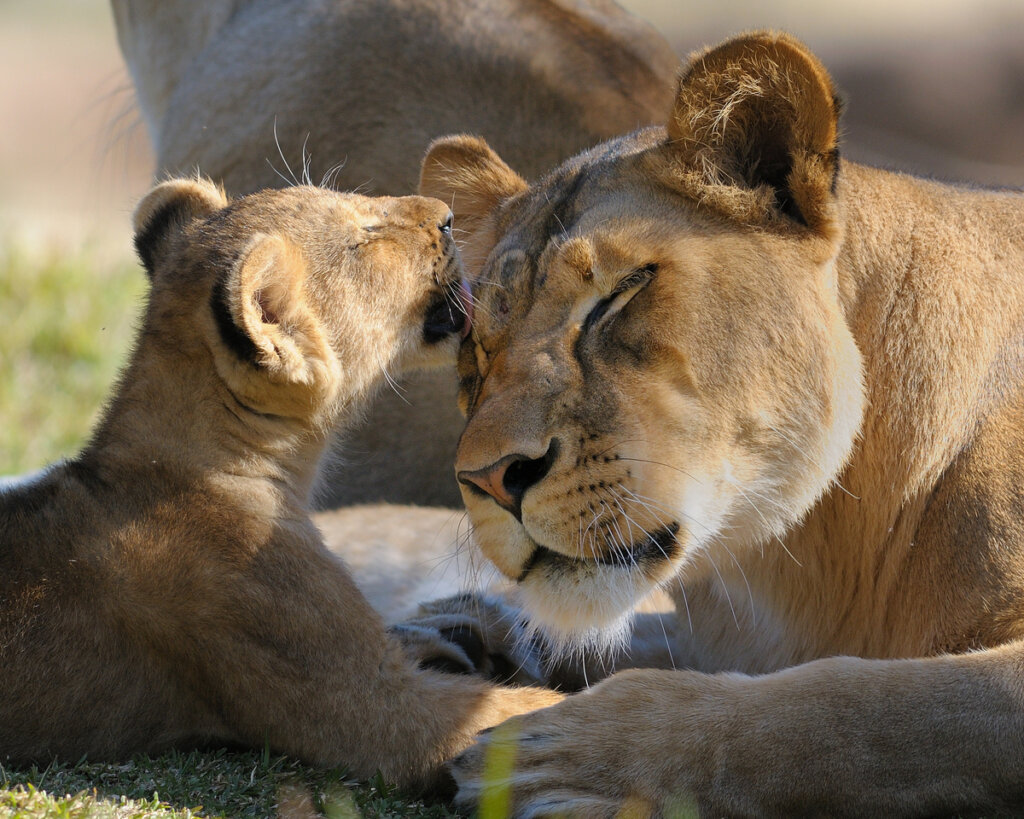
Caring for their young is essential for many species that we find in nature, but some of the best mothers in the animal kingdom have earned that title because of the lengths they go to to protect their offspring.
Although there are many examples of parental care by mothers in nature, in the following lines you will find the most famous cases of maternal care in the animal kingdom. They’ll touch your heart!
The role of calf care
What is the point of caring for children? It seems like an absurd question, but parental behavior has a clear objective: to increase the chances of survival and future reproduction of the offspring. In other words, by taking care of their young, they increase the biological efficiency of their offspring.
Since the offspring of these species can’t fend for themselves when they’re born, they need the parents to invest part of their effort and time in feeding, protecting and teaching them how to survive. In evolutionary biology, this is called parental investment.
The best mothers in the animal kingdom
The title of best mother certainly needs to be earned. Ensuring the survival of the offspring has an added danger for some species, but this doesn’t stop the following representatives from defending their children.
1. Orangutan ( Pongo pygmaeus )
Orangutans, like all cognitively complex animals, have a long childhood. This implies that the mother must keep her young with her for an extended period of time, with all that this implies: looking for food, defending it from predators, seeking shelter, teaching it to survive etc.
In addition, orangutans have the record for lactation time: they can suckle up to 2-3 years. However, after that, they stay with their mother for up to 5 more years, in order to learn everything they need before starting an independent life. In addition, the mother will build a new nest each night to protect her young.
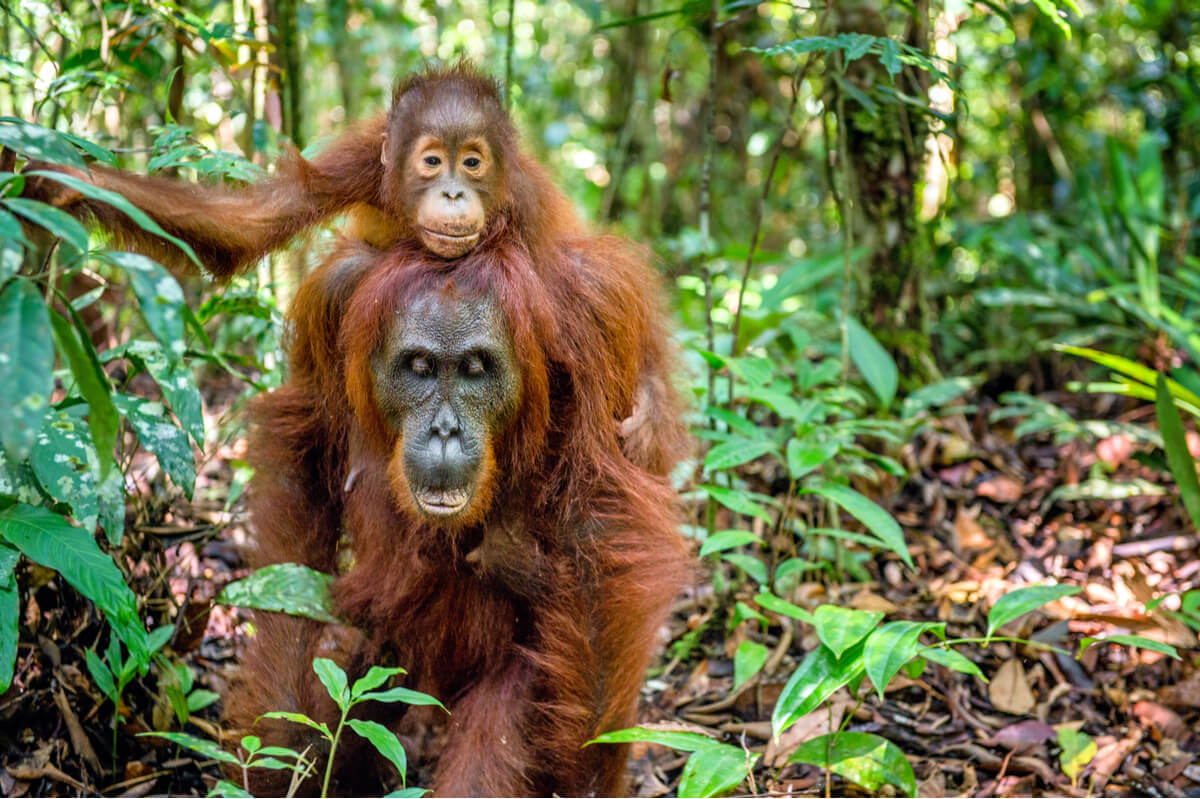
2. Cows (Bos primigenius taurus)
Many of us know that cows have a really strong maternal instinct, but did you know that a 24-hour period of contact between cow and calf after calving is enough to create the bond? Even if the calf presented to them isn’t theirs, the cow will adopt it.
On dairy farms, many farmers claim that the mother may moo in despair for days when her calf is taken away from her right after birth in order for them to continue giving milk. And if you search online, you’ll find many stories of cows fleeing on the way to the slaughterhouse to find their calf.
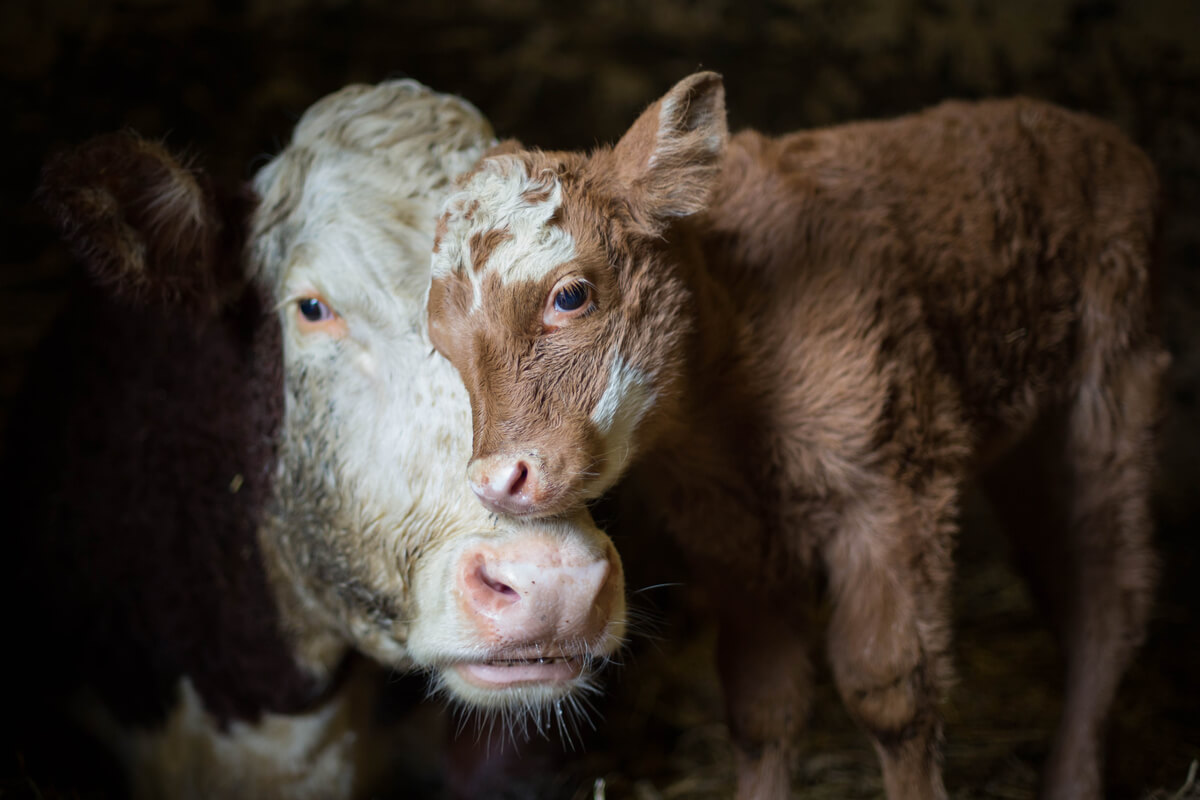
3. Elephants (Loxodonta africana)
Does 9 months seem like a long time for a pregnancy to you? Well, think of the elephant – their gestation lasts 22 months. Otherwise, they wouldn’t be able to deliver a baby weighing 200 pounds.
Although these two feats are by themselves sufficient merit to enter this list, lactation and care of the baby can take up to 3 years or even more, as it’s usually interrupted by the arrival of a new baby.
The social organization of elephants is matriarchal, and the care of the offspring is a fundamental factor to balance the hierarchy. The females celebrate the moment when a new specimen is born and then all of them collaborate to look after it and protect it.
In this way, young females also prepare for when their time comes.
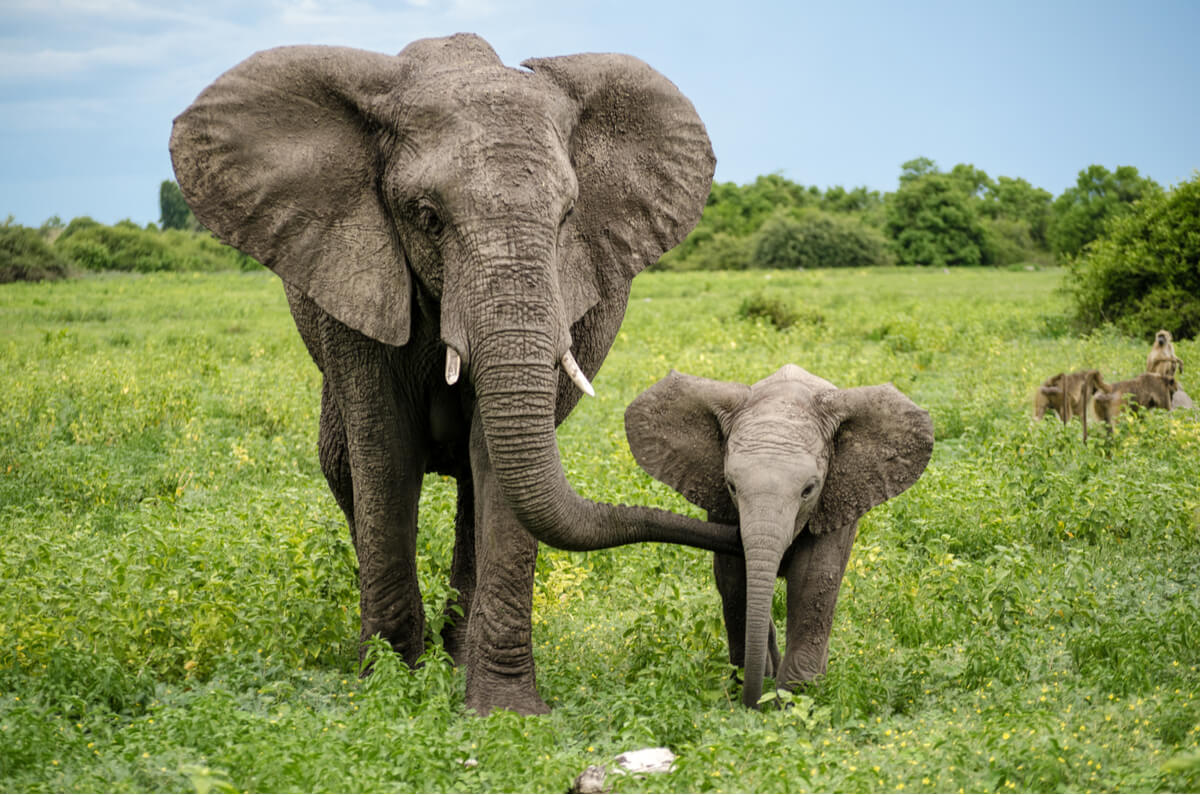
4. Female giant octopus (Enteroctopus dofleini)
Female giant octopus literally give their lives for their young. During laying, the mother hides long strings of eggs in cracks or projections so that no one can find them. Once this is done, it watches the eggs until they hatch, as many predators lurk to eat them.
This process can last up to 10 months – depending on how cold the waters are – and during all this time the mother doesn’t eat, as she only protects, cleans, and aerates the eggs to ensure that as many as possible will hatch. Often when hatching comes, the mother is so exhausted that she dies.
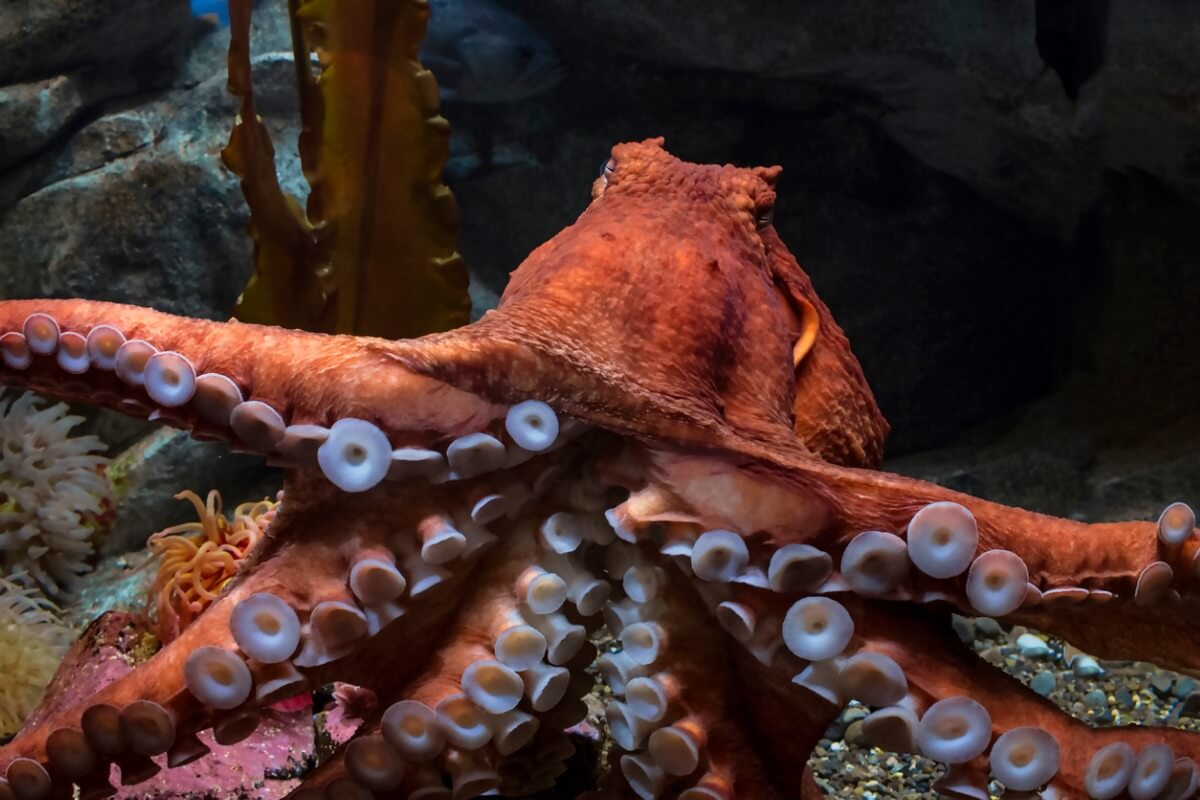
5. Female pilot whale (Globicephala macrorhynchus )
Also known as the pilot whale, the female of this cetacean is as good a grandmother as she is a mother. Retired mothers can continue to produce milk for up to 15 years after giving birth, so they are essential for the shared care of the young.
Did you know that they even act like midwives? When a young female goes to give birth, the veterans help to remove the baby from her body. Normally, the oldest members become the guide and fundamental pillar of the group, thus earning the title of matriarch and, of course, one of the best mothers in nature.
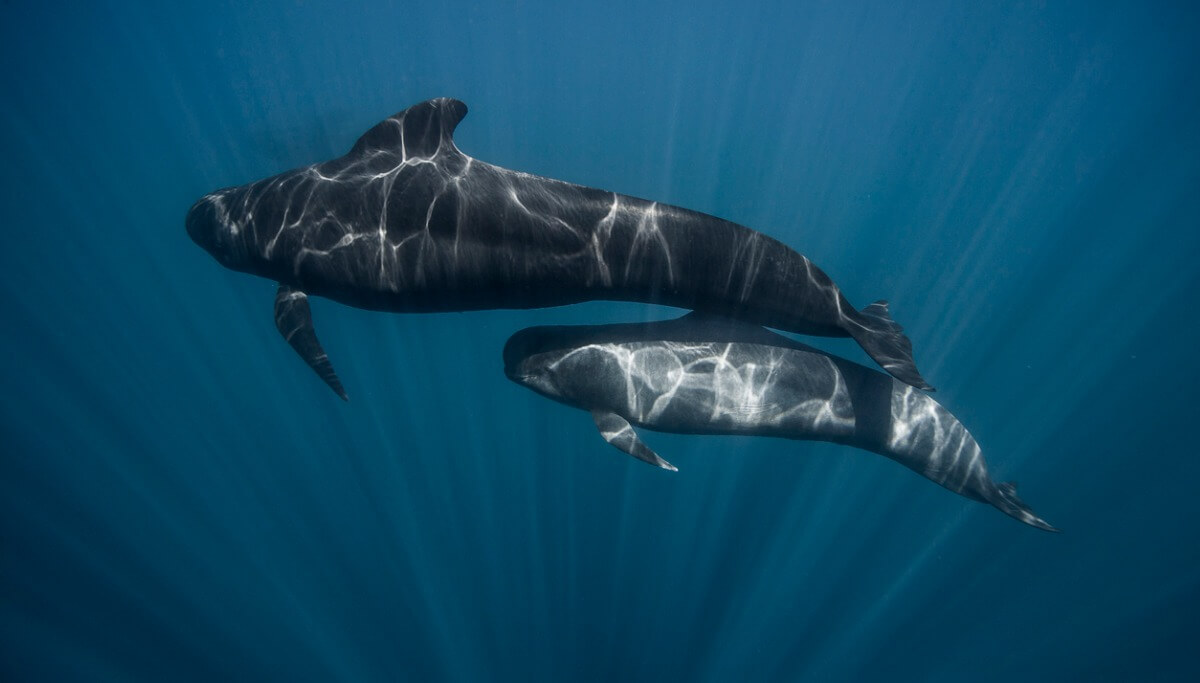
Respect for mothers!
The best mothers in the animal kingdom that you’ve read about here aren’t the only ones out there. From prolonged childhoods to serving food for their children —like some species of spider— many living beings make great sacrifices in pursuit of the survival of the species.
When it comes to animals such as orangutans or elephants, the recovery of the species becomes very difficult, due to the few children that the females can bring to full term each season. Let’s respect this parental bond to preserve nature in the long term.
All cited sources were thoroughly reviewed by our team to ensure their quality, reliability, currency, and validity. The bibliography of this article was considered reliable and of academic or scientific accuracy.
B. J. Buddenberg, C. J. Brown, Z. B. Johnson, R. S. Honea, Maternal Behavior of Beef Cows at Parturition, Journal of Animal Science, Volume 62, Issue 1, January 1986, Pages 42–46, https://doi.org/10.2527/jas1986.62142x Ethics, A. (2020, 20 noviembre).
Adoptando a animales que se han quedado huérfanos en la naturaleza. Animal Ethics. https://www.animal-ethics.org/animales-en-el-mundo-salvaje/que-podemos-hacer-ayudar-animales-naturaleza/animales-huerfanos-en-la-naturaleza/
Parental Behavior. (2009, 1 enero). ScienceDirect. https://www.sciencedirect.com/science/article/pii/B9780123735539001942
Augusto, J. F. (2017, 1 abril).Characterizing alloparental care in the pilot whale (Globicephala melas) population that summers off Cape Breton, Nova Scotia, Canada. Wiley Online Library. https://onlinelibrary.wiley.com/doi/abs/10.1111/mms.12377